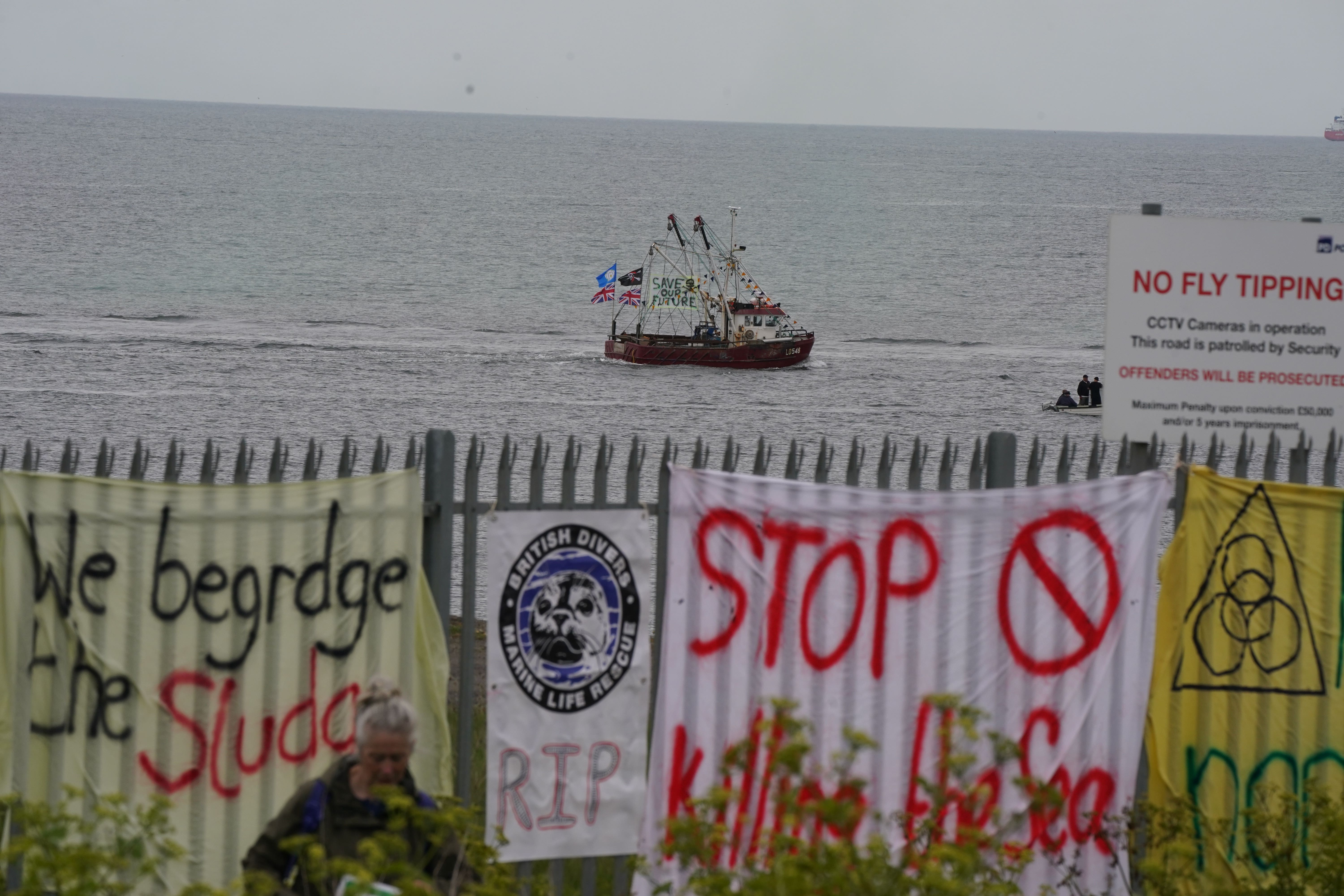MPs call for study into whether novel pathogen caused mass crab deaths
A mass die-off of marine life took place on the north-east coast in 2021.

Your support helps us to tell the story
From reproductive rights to climate change to Big Tech, The Independent is on the ground when the story is developing. Whether it's investigating the financials of Elon Musk's pro-Trump PAC or producing our latest documentary, 'The A Word', which shines a light on the American women fighting for reproductive rights, we know how important it is to parse out the facts from the messaging.
At such a critical moment in US history, we need reporters on the ground. Your donation allows us to keep sending journalists to speak to both sides of the story.
The Independent is trusted by Americans across the entire political spectrum. And unlike many other quality news outlets, we choose not to lock Americans out of our reporting and analysis with paywalls. We believe quality journalism should be available to everyone, paid for by those who can afford it.
Your support makes all the difference.MPs are calling on Environment Secretary Therese Coffey to launch an investigation into whether a novel pathogen caused a big crustacean die-off in the North East.
The request is made in a letter on Tuesday from Sir Robert Goodwill, chairman of the Environment, Food and Rural Affairs Committee which states that a study should be carried out “as a matter of urgency”.
Thousands of dead and dying crustaceans washed ashore along parts of the north-east coast of England between October and December 2021.
Mystery still surrounds the cause of the mass die-off but the independent crustacean mortality expert panel’s reports “a novel pathogen was the most likely” cause.
The letter also states: “The committee believes that further work should be undertaken to identify this novel pathogen, given the importance of determining its origin, its vectors of transmission, its transmissibility, its virulence and other factors related to it.
The committee is of the opinion that Cefas must undertake further analysis in regard to the novel pathogen theory given the importance of seeking as definitive an explanation as possible
“Indeed, as the independent panel highlighted, a conclusive result from the broad diagnostic screening of samples would significantly affect the level of confidence in the novel pathogen theory.”
Dying creatures were seen “twitching” and displaying lethargic behaviour during the mass crab deaths on the coastline from Hartlepool to Whitby.
There were distressing scenes of large numbers of dead and dying lobsters and crabs on beaches while fishing crews warned sparse catches offshore following the event were “catastrophic” for their livelihoods.
Mark Spencer, the food, farming and fisheries minister, told the House of Commons on January 26: “I am considering carefully if further analysis by the Centre for Environment, Fisheries and Aquaculture Science (Cefas) can ascertain conclusively the cause of this unusual mortality”.
The letter said: “The committee is of the opinion that Cefas must undertake further analysis in regard to the novel pathogen theory given the importance of seeking as definitive an explanation as possible for this mass die-off event and we recommend that you instruct Cefas to conduct this study as a matter of urgency.
Research by academics, backed by the fishing industry, suggested the incident could have been caused by industrial pollutant pyridine, possibly from dredging in the mouth of the River Tees to maintain channels for port traffic.
Teesside is home to one of the Government-backed freeports – special economic zones offering tax breaks and lower tariffs.
There had been calls for a halt to dredging for the new freeport pending a full analysis of the situation.
However, an independent panel, made up of academics, industry experts, and chaired by the Department for Environment, Food, and Rural Affairs (Defra) chief scientific adviser Gideon Henderson, found it was “very unlikely” the cause was pyridine or another toxic pollutant.
The MPs also noted that while “the independent panel’s report considered the likelihood of pyridine, or another toxic pollutant, as having caused the mass die-off event to be ‘very unlikely’, particularly via dredging, it did not completely discount a pollutant as the reason”.
Relevant government units, including Cefas and the Environment Agency, should carefully monitor the area and “stand ready to respond quickly to a similar event in the future,” the letter added.
This could mean they should be ready to take rapid samples of the water, sediment and from affected animals in order to try to understand the causes of another mass die-off.
The committee also called on Defra to “swiftly complete” its analysis of the economic impact of the incident and, pending its outcome, provide initial financial support to those affected and for the regeneration of crab and lobster stocks.
The committee is hoping for a response within two weeks.